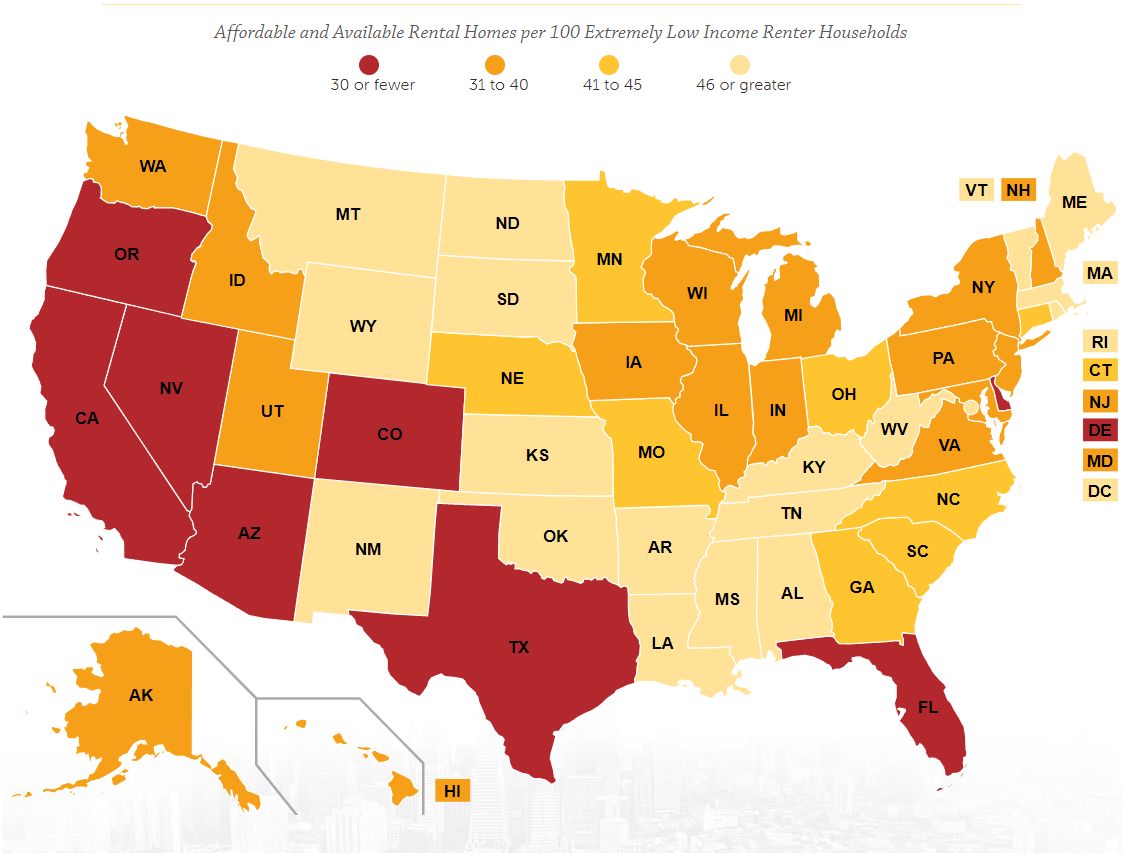AUSTIN, Texas — Texans are fighting back over lawmakers failing to use federal dollars to fund housing.
Texas received more than $16 billion from the American Rescue Plan, and zero of that went into programs for housing insecurity, homelessness or rent relief.
Now, an investigation is under way, claiming the state went against federal treasury guidelines. The American Rescue Plan was put in place by the Biden administration to help those still suffering economically from the pandemic. This decision comes as Texas is dealing with a housing crisis.
The National Low Income Housing Coalition Map shows Texas ranks the lowest for affordable and available rental homes. The site shows Texas has 29 affordable and available rental homes per 100 ”extremely low income renter households.”

Carla Davis is one of those low-income renters. Times have been tough for the single mother and her three boys. She says public assistance programs are what kept her family afloat.
“It’s very important, it’s very necessary,” she said.
Davis already lives in a low-income apartment in East Austin. Then when her unemployment ended, she couldn’t pay rent.
“With the little income that I had, I had to make car payments, buy new furniture, beds and things like that,” she said.
Davis just got approved for a Section 8 low-income housing voucher. She’s been on the waiting list since 2016.
“I thank God that it actually went through,” Davis said.
So, after living her entire life in Austin, Davis is packing up her things to move about 45 minutes north to Taylor, Texas, where her voucher will work.
“It’s some adjusting to get through, but I’m not gonna let my Section 8 voucher go to waste,” she said.
A U.S. Census Bureau survey shows more than 1.7 million households in Texas have little to no confidence that they can afford next month’s rent. Black and brown Texans like Davis make up the majority of those renters. The survey showed 55% of white Texans were highly confident they could pay rent compared to 21% of Black Texans and 14% of Hispanic Texans.
That’s why it came as a major shock to advocates like Texas Housers when the state failed to allocate any federal relief funds into initiatives that would alleviate housing insecurity. Texas Housers Advocacy Director David Wheaton says they were hoping to get 10-15% of Texas’ more than $16 billion from the the American Rescue Plan.
“We think this is a really really bad and a raw deal for the people of Texas,” Wheaton said.
Appropriations subcommittee chair Rep. Greg Bonnen and Senate Finance Committee chair Sen. Jane Nelson authored these appropriations bills approved by the Texas Legislature.
Spectrum News reached out to Rep. Bonnen and Sen. Nelson for comment.
We have yet to receive a reply.
Some of the top funded programs in these bills included unemployment, hospital staffing and state employee salaries.
Here’s a look at SB8’s allocation of funds:
• $7.2 billion to replenish the Unemployment Compensation Fund, ensuring that businesses are not faced with an increase in unemployment taxes due to pandemic-related layoffs;
• $3 billion to deploy hospital surge staffing, purchase therapeutic drugs, and support regional infusion centers;
• $3.7 billion to cover salaries and benefits for state employees directly working on pandemic response;
• $500.5 million for broadband expansion, with $75 million of those funds designated for a broadband pole replacement program (out of the Coronavirus Capital Projects Fund);
• $500 million for construction projects at institutions of higher education, contingent on the passage of legislation;
• $300 million for a State Operations Center to aid the state in disaster response;
• $200 million to bolster cybersecurity;
• $160 million to shore up funding for organizations se therving sexual assault survivors and other crime victims;
• $286 million to the Teacher Retirement System to cover COVID-related health claims and to ensure no active or retired teacher faces an increase in health care premiums due to the pandemic;
• $237.8 million to expand access to mental health care by completing construction of a new state psychiatric hospital in Dallas;
• $113 million to the Texas Child Mental Health Care Consortium to expand mental health treatment options for young Texans struggling with depression and suicide; and
• $100 million to support Texas food banks, which continue to serve high numbers of Texans in need.
Now, Texas Housers is challenging the Legislature’s appropriations. The nonprofit is working on filing a complaint with the United States Treasury Department.
Wheaton says they believe Texas used funds from ARP to supplant state funds to use to offset future property tax cuts, which the Treasury Department prohibits states from doing.
“We think a lot of what was appropriated were swaps, so the state of Texas doesn’t have to fund certain things with their general revenue come next 2023 session with their budget,” he said.
As for Texans like Davis, they’ll have to rely on current support services.
The City of Austin just added $6.4 million to its rent relief program and extended renter protections until Dec. 31.



